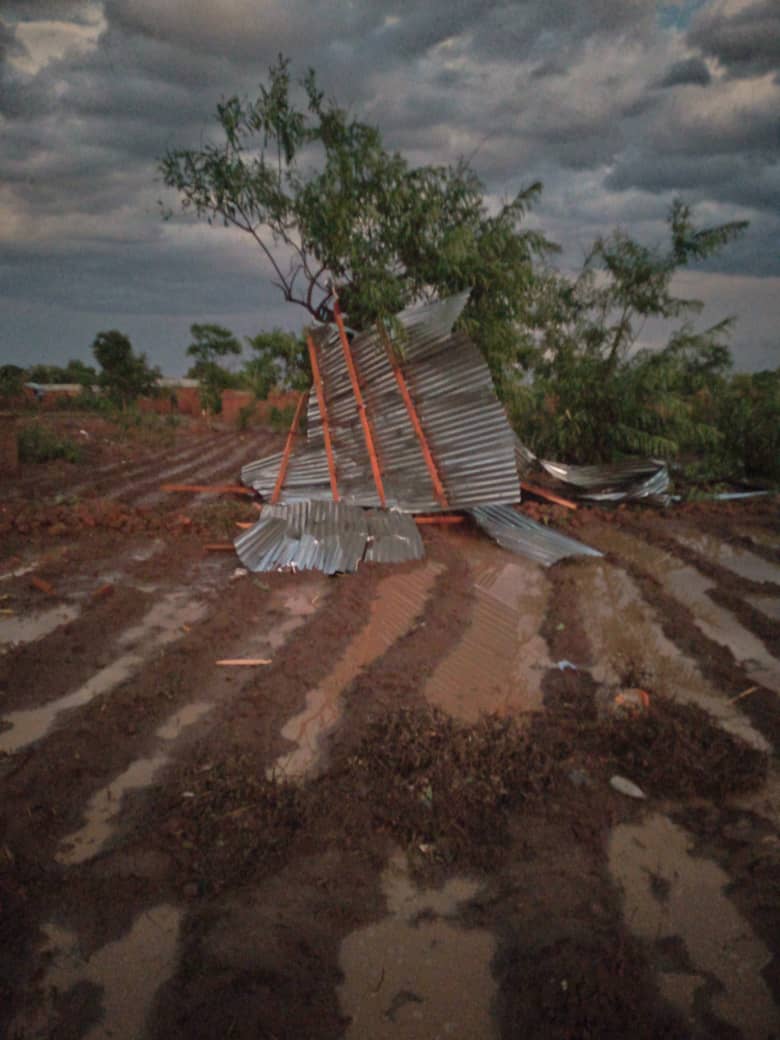
As we approach Christmas, most people are excited and happily looking forward towards joyful festivities where they get to be reunited with their families. However, this is not the same feeling with people in southern Africa living in floods and disaster-prone areas as this period is now being called 'the Cyclone Season.' This is because the period of Christmas coincides with the development of the Inter -Tropical Convergence Zone (ITCZ) affecting Southern Africa due to the convergence of northeast and southeast trade winds in the area encircling Earth near the Equator. The ITCZ is responsible for the formation of cyclonic activities that affects countries like Tanzania, Madagascar, Mozambique, Malawi, Zambia and Zimbabwe.
In January 2022, Malawi was affected by floods as a result of heavy rains caused by Tropical Cyclone Ana and Gombe. According to the Department of Disaster Management Affairs about 945,000 people were affected, including more than 190,000 displaced, with 46 deaths, 18 missing and 206 injuries. The heavy rains damaged houses, roads, schools, sanitary facilities, bridges, water wells, power lines, crops, and irrigation systems among others. Most of the displaced were living in displacement sites such as designated evacuation centers, schools, churches, community buildings and other temporary shelters, while some were hosted by relatives. A total of 476 schools in 22 education districts were affected, disrupting access to education for 398,908 learners (DODMA,2022). Classroom blocks, teachers’ houses, latrines, administration blocks, libraries, dormitories, kitchens, feeding shelters and boreholes are some of the infrastructure were damaged. Influx of Internal Displaced People (IDP) in schools had further disrupted teaching and learning processes. The Malawi Vulnerability Assessment Committee (MVAC-2022) report indicates that current food insecurity in the country is driven by several shocks largely climatic including cyclones which resulted into flooding in most southern and central region of Malawi. These victims have not yet recovered from the damages, and there looms another season that is likely to be coupled by a number of cyclones. The last cyclones did not just render people homeless, but also increased their vulnerability. These people had left their invaluable homesteads and farms, which they have not yet recovered. This as such makes the threat of this season’s cyclones even more risky, because the disasters are going to worsen the situation. According to the Meteorological Services officer at the Department of Climate Change and Meteorological Services in Malawi, over five cyclones are likely to affect people of southern Malawi in a period between December 2022 to March 2023 .
During this festive season, JCED plans to embark on a disaster preparedness and response campaign with a goal of contributing towards community resilience and risk management. This follows the Caravan of Hope Tour which revealed that most communities in disaster prone areas have limited capacity to prepare and respond to climate-related disasters. JCED is thus appealing for donations and funding towards disaster preparedness and response. Your support will go a long way in supporting and assisting the frontline communities that are under threat from the climate-induced floods and cyclones in southern Malawi.
In reaching out to the frontline communities impacted by these climate-induced disasters, JCED is inspired by the Universal Apostolic Preferences (2019 - 2029 UAPs) for the Society of Jesus of “walking with the excluded” and “caring for creation - our common home." This is part of what Br. Ngonidzashe Edward SJ, the Director of the Jesuit Centre for Ecology and Development, called: "Our mission to translate Laudato Si and the UAPs into life by journeying with frontline communities that are most vulnerable and affected by the climate crisis."
Leave a comment